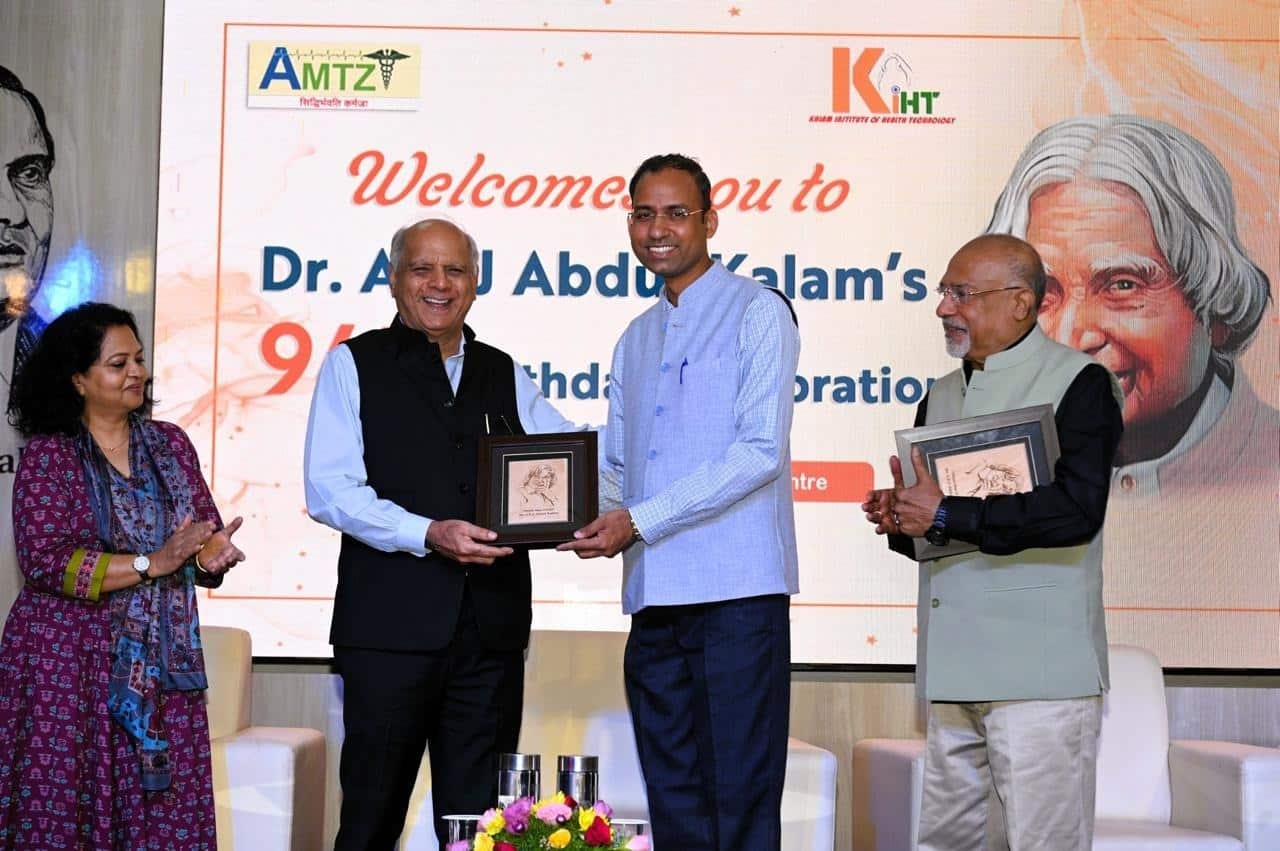Copyright healthcareradius

Commemorating the birth anniversary of Dr A.P.J. Abdul Kalam, the Andhra Pradesh MedTech Zone (AMTZ) and its research arm, the Kalam Institute of Health Technology (KIHT), undertook two new pioneering initiatives that mark a significant stride in India’s MedTech innovation journey. On the occasion of the birth anniversary of Dr Kalam, SVL Bioscience, a startup within AMTZ, inaugurated its state-of-the-art clean-room facility for the manufacturing of rapid diagnostic kits for dengue, with plans to expand production to cover a wider range of parameters, a move set to revolutionise affordable and rapid diagnostics in India. Additionally, AMTZ initiated a Thermoforming Technology Centre, designed to provide large enclosures and custom components for medical device manufacturers, further strengthening India’s precision manufacturing ecosystem. These new initiatives, launched in Dr Kalam’s birth anniversary month, manifest the commitment of AMTZ and KIHT to driving indigenous innovation, manufacturing excellence, and global competitiveness in healthcare technology. Affordable biomedical innovation Speaking on the pivotal role of KIHT, Dr Jitendra Sharma, Founder, CEO and Managing Director, AMTZ, and Founder Executive Director of Kalam Institute, said, “The establishment of KIHT within AMTZ marked a strategic leap for India’s biomedical innovation landscape. Our goal was never just to manufacture devices; it was to build an ecosystem where science, policy, and industry evolve together. The scientific ecosystem in India is now robust; our laboratories and R&D capabilities are among the world’s best and well-established for over 25 years. The next big leap is to strengthen the commercial ecosystem, to take science from lab to market, from innovation to industry.” “We are in the process of enabling a MedTech Capital Fund to support growth-stage MedTech companies and take them towards IPO-readiness. In addition, AMTZ has acquired a World Trade Centre (WTC) license, making it the only cluster in India, and the only one globally, to host both a WHO Collaborating Centre and a World Trade Centre. This connects us to 392 WTCs across more than 100 countries, expanding India’s MedTech reach through global trade linkages. The aim is clear: to turn scientific success into commercial success,” added Dr Sharma. Since its inception in 2017, KIHT, an initiative of the Union Government’s Department of Biotechnology, has evolved into a national catalyst for indigenous R&D, evidence-based policy, and affordable innovation in healthcare technology. It has supported the development of over 100 medical technology products and continues to build a robust scientific and commercial ecosystem. With India’s medical device industry projected to reach USD 50 billion by 2030, KIHT is steering a movement that connects the nation’s scientific ingenuity with global market readiness. Established to build coherence among researchers, manufacturers, policymakers, and knowledge repositories, KIHT bridges the gap between academic innovation and industrial application, shaping India’s evolution into a self-reliant and globally competitive MedTech hub. Ensuring access to quality healthcare Emphasising KIHT’s mission, Dr Kavita Kachroo, Chief Operating Officer, KIHT, said, “Our goal is to transform innovation into impact. KIHT accelerates research-to-market journeys by enabling innovators and startups with technical guidance, access to expertise, and continuous industry engagement. By merging the academic knowledge base with AMTZ’s manufacturing capabilities, we are building a pipeline of medical devices that meet both Indian and global standards.” As the scientific ecosystem matures, KIHT and AMTZ are now deepening their focus on commercialisation and scale-up. Around 160 companies currently operate within AMTZ, including nearly 30 foreign entities, making it one of the most vibrant and diversified MedTech manufacturing clusters in Asia. This synergy is yielding tangible global impact. KIHT’s multidisciplinary approach spans policy support, technology consultancy, testing and validation, transfer of technology, and evidence-based R&D facilitation. Through strategic partnerships with premier academic and research institutions, KIHT ensures innovators gain access to AMTZ’s state-of-the-art infrastructure, from advanced biomaterials and 3D printing labs to electromagnetic compatibility and imaging research centres. Also Read: India’s MedTech sector to hit $30 billion by 2030: Union Minister Aligned with Dr Kalam’s vision of self-reliance, KIHT’s efforts go beyond innovation; they focus on ensuring equitable access to quality healthcare, promoting the ‘Make in India’ ideology, and positioning the nation as a global hub for MedTech research, development, and trade.



